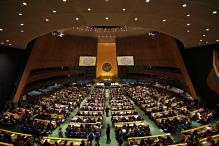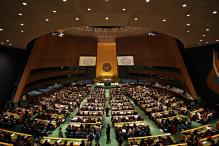Over the past 30 years, the UN Security Council has played an increasingly far-reaching role on questions of transitional justice, including with respect to serious human rights violations, accountability, institutional reform and conflict transformation. Despite decades of experience, however, the relationship between Security Council practice and impact in post-conflict transitional justice settings is poorly understood. As a result, there is little evidence to demonstrate whether particular Council approaches are more effective than others and what impact these approaches have on the ground.
How does Security Council language reflect the Council’s approach to transitional justice? What is the impact of the Security Council’s transitional justice approach across different settings? In addressing these questions, this project aimed to understand both the evolution and the effectiveness of the Security Council’s approach to transitional justice, with the goal of informing more impactful practice in the future.
The completed volume, The UN Security Council and Transitional Justice, seeks to provide a preliminary look across five case studies (Afghanistan, Colombia, the Democratic Republic of the Congo, Rwanda and South Sudan, completed in August 2020) on the conditions under which support from the Security Council can positively impact transitional justice efforts on the ground. A number of overarching recommendations are outlined for the Council, the UN Secretariat, and transitional justice advocates as they think through whether, when and how to engage Council members on these issues going forward.
Research outputs:
- Full volume
- Cross-cutting paper, by Dr Rebecca Brubaker
- Afghanistan case study, by Cale Salih
- Colombia case study, by Dr Rebecca Brubaker
- Democratic Republic of the Congo case study, by Professor Phil Clark
- Rwanda case study, by Dr Nicola Palmer and Dr Robyn Gill-Leslie
- South Sudan case study, by Dr Adam Day
This research was mandated and funded by the Federal Department of Foreign Affairs of Switzerland and advised by the Office of the High Commissioner for Human Rights (OHCHR). The views and opinions expressed in this publication are those of the authors and do not necessarily reflect the official policy or position of the Swiss Confederation or OHCHR.


